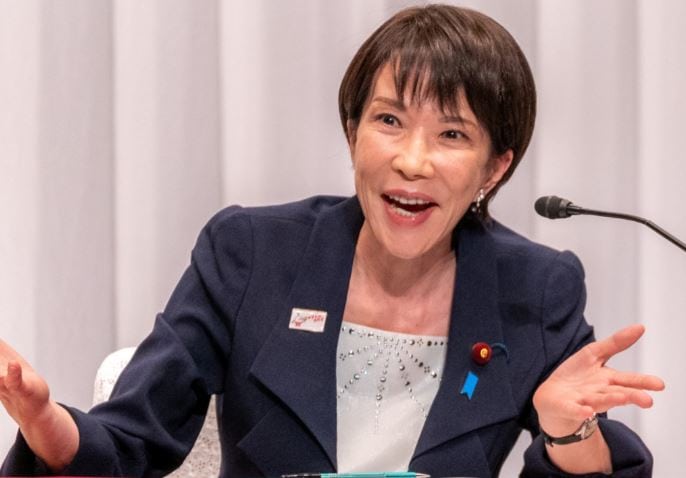TOKYO – Japan got its first female prime minister Sanae Takaichi, as she stormed to victory in Liberal Democratic Party leadership race and secured an unexpected parliamentary majority.
The 64-year-old pulled off an unexpected victory in initial round of parliamentary voting. The outspoken social conservative and China hawk clinched her win through a last-minute coalition deal with the reformist Japan Innovation Party (JIP), just days before US President Donald Trump’s scheduled visit.
He once rocked stages as heavy metal drummer, became leader of ruling Liberal Democratic Party (LDP) on October 4. Her rise shook political landscape when Komeito party abandoned coalition over her conservative stances and scandal involving LDP funds. Forced into a new alliance with JIP, she now leads a minority government with bold promises: slashing food taxes, eliminating corporate donations, and reducing the number of lawmakers.
She vows to “make Japan’s economy stronger and reshape the country for future generations,” and promises cabinet with “Nordic-level” female representation, a stark contrast to the mere two women under outgoing premier Shigeru Ishiba. Yet, despite championing women’s health and speaking openly about menopause, Takaichi opposes allowing married couples to keep separate surnames and supports male-only imperial succession.
Takaichi’s government faces a daunting agenda: navigating unresolved trade talks with Washington, curbing Russia energy imports, addressing population decline, reviving a flatlining economy, and countering security threats from China. She has tempered previous hardline rhetoric on Beijing and skipped this year’s controversial Yasukuni shrine festival, a departure from her prior regular attendance.
As a minority government, Takaichi must rally support from other parties to pass legislation. She has flirted with policies reminiscent of “Abenomics,” including aggressive monetary easing and expanded government spending, which helped Japanese stocks hit record highs following her victory.
Public opinion is mixed. Pensioners in her hometown of Nara praise her decisiveness, with one remarking, “She’s strong-minded, regardless of being a woman.” Others remain skeptical, pointing to rising prices and tough economic conditions. Young women hope for policies that support childcare and help those returning to work after having children, while conservative voices applaud her adherence to traditional family and imperial values.














